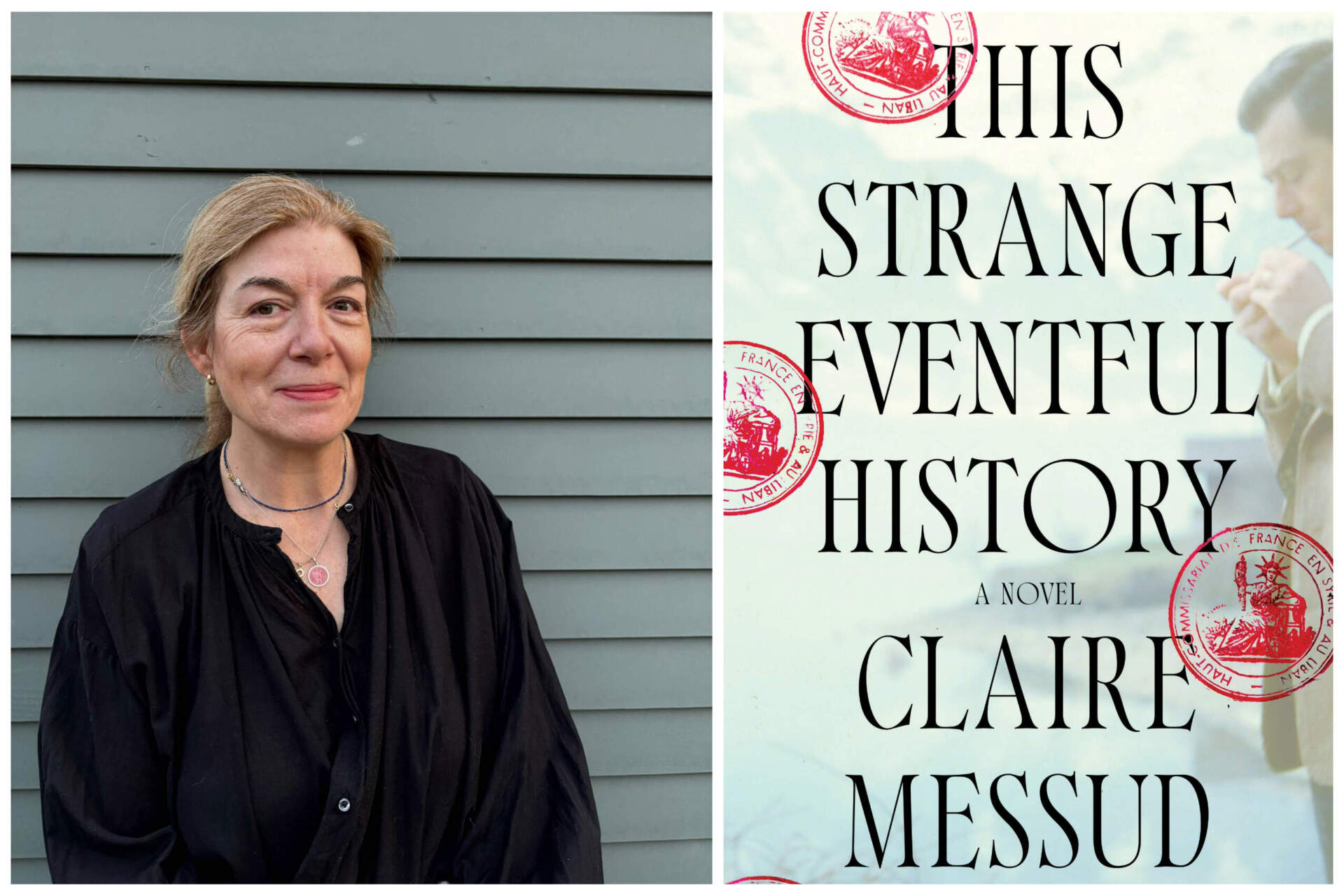Advertisement
Review
Claire Messud's latest novel is a multigenerational saga inspired by real events

In the prologue to “This Strange Eventful History,” Claire Messud’s outstanding multigenerational saga, an unnamed narrator considers how to share the story of her family. She concludes that “It doesn’t matter where I start. We’re always in the middle; wherever we stand, we see only partially.”
And then she has another insight: “I could begin, of course, with the aloneness.”
Over the span of 70 years, from 1940 to 2010, “This Strange Eventful History” tells the often-heartbreaking tale of three generations of the Cassar family: Gaston and Lucienne; their son and daughter-in-law, François and Barbara, their daughter Denise, and their granddaughter Chloe.
The story opens at a fraught historical moment, when Nazi Germany is on the verge of invading France. Gaston, the naval attaché to the French consulate in Greece, has sent his family to Algiers to be far from Europe’s battlegrounds. Algiers is Gaston and Lucienne’s homeland, and where their extended family resides. It is an entirely new country to François and Denise, who are 8 and 6 years old, respectively.
This will be the first of many moves. Over the course of the next seven decades, the Cassars will attend elite colleges, attain high-powered jobs, and raise children in many parts of the world, including Massachusetts, England, South America, Australia and France. Yet, as an adult in the 1990s, Chloe is left with the feeling that she and her family had “lived many places and belonged nowhere.”
In an interview with Vanity Fair in April, Messud — the award-winning author of six works of fiction, including “The Woman Upstairs” and “The Burning Girl” — said that the idea for the novel emerged from reading her grandfather’s letters to his children, in which he chronicled their family’s story. “This Strange Eventful History” is based on some real-life events in Messud’s own family, including how, over three generations, they had shed their foundational French Catholic identity for the more diffuse one of Protestant American, with all the enormous cultural adaptation this implies.
Messud currently lives in Cambridge and teaches fiction at Harvard University. Like Gaston and Lucienne, Messud’s father was originally from French Algeria, and she grew up in some of the locales that are key settings for this tale, including Australia and Canada.
“This Strange Eventful History” is richly textured with a diverse highlight reel of the 20th century: French and Algerian politics, Cuban night life in the early 1950s, the global impact of the aluminum and steel industries. Because Messud ties background facts directly to how they alter the path of a character’s life, or what they reveal about a character, the details always move the story forward, never weigh it down.
But perhaps the most striking aspect of this novel is how Messud conveys loneliness in its many forms. There is an apartness within each of these characters even as they are tightly knotted to each other’s lives.
The wartime disruptions force François to grow up too fast, transforming him from adventurous boy to emotionally isolated man. Even as he accrues academic honors and later attains business success to forge a comfortable life for him and his family, he is unable to fully absorb joyful events.
Advertisement
Loneliness also shows up in Denise’s disconnectedness from the world (a needy child, she grows up to be an insecure adult more comfortable in imagined romances than real ones) and in Barbara’s aloofness toward her husband and daughters. In an ambitious book where the characters both reflect their times and also contain surprising layers of emotion, Barbara is the sole character who is merely a societal mirror: she marries young in the 1950s; transforms herself from housewife to lawyer in the 1970s; feels perpetually constrained by family demands.
Only Gaston and Lucienne shared an abiding romantic happiness, bolstered by the deep Catholic faith that offers a mainstay through their many relocations around the globe for Gaston’s career. And yet, Gaston’s love for Lucienne, who is 15 years older than him, bears an uneasy, overprotective quality that is inexplicable — for most of the story.
To build this expansive tale, Messud created seven sections, with each section focusing on just one year per decade, and chapters for that year told in rotating points of view. The choice to jump forward to particular years creates distinctive tales within the overall tale, whose details resonate more than a more traditional linear chronicle might. For example, one section takes place in 1953, when François is an undergrad at Amherst College, and the next starts in 1962 when he is a husband and father. Background gaps are seamlessly filled in by illuminating dialogue or by a character’s inner musings.
Some chapters can read almost as scenes from a play, like the exquisitely crafted one set in Connecticut, 1989: François and Barbara are now 30-some years into a marriage riddled with coldness and indifference. In this telling episode, François busies himself at home but is agitated over a financial scandal at his company. When Barbara returns from a meeting, their conversation bristles with the tension of partners who can feel a familiar fight bubbling to the surface, but are so emotionally weary they cautiously edge away from confrontation toward another composed but closed-off night. During it all, Messud gradually reveals events that led them here, and how François and Barbara will always know the outlines of each other’s behavior more than they’ll ever know the depth of each other’s heart.
There are many note-perfect scenes like this throughout this masterfully written novel.
The cover of “This Strange Eventful History” displays bold red French passport stamps against a misty blue and white landscape. Only after a moment do you notice, partially in frame, the hazy figure of an urbane-looking man lighting a cigarette. It’s an arresting design, for what you initially see, and what ultimately comes into focus.